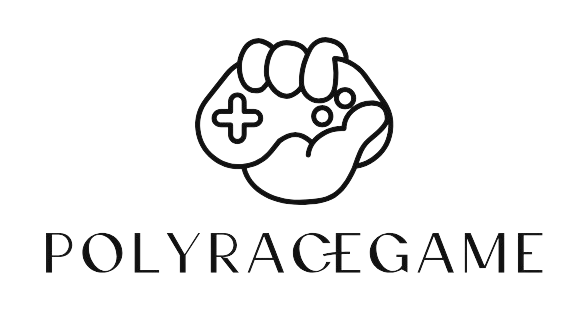How is student progress monitored in online tuition classes?
With the fast headway of innovation, training has found another domain as online educational cost classes. Learning has become more flexible, accessible, and inclusive as a result of the shift to digital platforms. To improve their chances of achieving top grades, many students opt for o level math tuition, which offers specialized instruction and support. However, a crucial question arises: In online tuition classes, how is progress monitored for students?
In the customary homeroom setting, educators can outwardly screen understudies’ figuring out, exertion, and commitment. It is simple for them to pose a question or a problem and observe how students respond. Notwithstanding, online educational cost classes present a novel test. To overcome this issue, instructors utilize imaginative and successful strategies to screen understudy progress on the web.
Online assessments are one of the most widely used methods. Students’ comprehension and knowledge retention are frequently assessed through online quizzes, tests, and assignments. Students are able to immediately identify their strengths and weaknesses thanks to the often-immediate feedback provided by these assessments.
Utilizing learning management systems (LMS) is yet another approach. These stages track understudy progress through coursework, support in conversations, culmination of tasks, and test scores. They provide educators and parents with a comprehensive view of a student’s progress, allowing them to identify areas in which a student may be excelling or struggling.
Instructors likewise influence advanced investigation apparatuses implanted inside internet based schooling stages. These tools give information about how much time a student spends in a course, how often they log in, and how they interact with the materials. Teachers can personalize the learning experience by adapting their teaching methods based on the needs of their students thanks to this real-time data.

Besides, online educational cost classes frequently use conversation sheets, bunch ventures, and companion survey to measure understudy progress. Students not only learn from each other but also demonstrate their understanding and application of concepts through these collaborative activities. A student’s comprehension of the course material is measured by how much they participate in these activities and how well they contribute.
In conclusion, there are many facets to monitoring student progress in online tuition classes. Assessments based on technology, learning management systems, analytics tools, group activities, and personal communication are all required. These tools and methods create an enriching learning environment that provides valuable insights into student progress and real-time data, despite the fact that it may appear challenging. As online schooling keeps on developing, these techniques will without a doubt turn out to be more refined and modern, guaranteeing an extensive and powerful assessment of understudy progress. Therefore, o level math tuition is a great resource for students aiming to improve their understanding of mathematical concepts and ace their exams.
Overview of KYC Regulations and Their Purpose
Know Your Customer (KYC) regulations are an essential part of the global financial system, aiming to prevent illegal activities such as money laundering, terrorist financing, fraud, and identity theft. KYC regulations require financial institutions and businesses to verify the identity of their customers and assess the risks associated with their activities. This article provides an overview of kyc service provider regulations and their purpose in promoting transparency and integrity in the financial sector.
KYC Process:
The KYC process involves collecting and verifying customer information to ensure compliance with regulatory requirements. The key components of a typical KYC process include:
-
- Customer Identification: Financial institutions gather basic customer information such as name, address, date of birth, and identification documents like passports or national identification cards.
- Risk Assessment: Institutions assess the risk associated with each customer based on factors such as their location, occupation, source of funds, and intended transactions. Higher-risk customers may undergo enhanced due diligence procedures.
- Ongoing Monitoring: Financial institutions conduct ongoing monitoring of customer activities to detect any suspicious transactions or changes in risk profiles. Regular reviews and updates of customer information are conducted to ensure accuracy and relevance.

Purpose of KYC Regulations:
-
- Prevention of Money Laundering and Terrorist Financing: KYC regulations are crucial in combating money laundering and terrorist financing. By verifying the identities of customers and understanding the nature of their transactions, financial institutions can identify and report any suspicious activities to relevant authorities, contributing to the prevention and detection of illegal financial activities.
- Fraud Prevention and Identity Theft: KYC regulations help mitigate the risks associated with fraud and identity theft. By validating customer identities, financial institutions can ensure that accounts are opened in the names of legitimate individuals or entities, reducing the chances of fraudulent activities and protecting customers from identity theft.
- Compliance with Legal and Regulatory Requirements: KYC regulations are designed to ensure that financial institutions comply with legal and regulatory frameworks. Adhering to kyc service provider procedures helps institutions meet their obligations, maintain transparency, and establish a system of checks and balances to safeguard the integrity of the financial system.
- Risk Management: The KYC process enables financial institutions to assess the risk associated with each customer. By understanding their customers’ profiles and activities, institutions can identify high-risk customers and subject them to enhanced due diligence measures. This proactive risk management approach helps institutions safeguard themselves against potential financial and reputational risks.
- Strengthening Customer Trust and Confidence: Implementing robust KYC procedures enhances customer trust and confidence in financial institutions. When customers are assured that their financial institution is taking appropriate measures to prevent fraud and illegal activities, they feel more secure in their financial transactions and are more likely to maintain long-term relationships with the institution.
